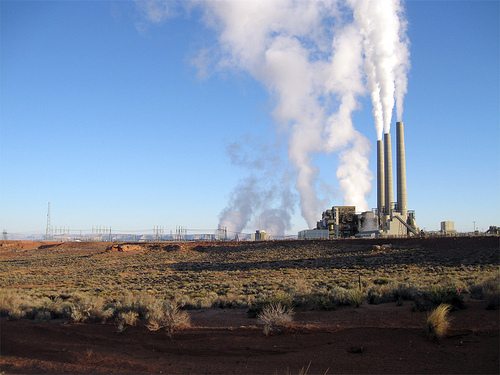

Environment
US carbon standards could save thousands of lives every year
The introduction of stricter emissions standards for US power plants could save thousands of lives every year, according to a new study.
By cutting dangerous air pollution, emissions standards could have almost immediate health benefits, researchers said.
Depending on the strength of the measures introduced, these benefits could include the prevention of thousands of hospitalisations and hundreds of heart attacks each year.
The study, co-authored by Harvard, Boston and Syracuse University scientists, studied the impacts of three policy options that could be included in the US government’s proposed Clean Power Plan.
The plan, put forward by the Environmental Protection Agency (EPA) this summer and due to be completed in June 2015, would place a limit on the emissions power plants can release into the atmosphere. The ultimate aim is to cut carbon pollution from the power sector by 30% from 2005 levels by 2030.
It is estimated that power plants account for around one-third of all greenhouse gas emissions in the US. But while primarily helping to tackle climate change, any cuts to these emissions could also boost public health.
A carbon standard would have the welcome effect of reducing other harmful emissions, such as sulfur dioxide, nitrogen oxides, and particulate matter. These pollutants cause heart and lung disease, exacerbate asthma, and ultimately can contribute to premature death.
“Hundreds of thousands of people suffer serious health problems from air pollution in the US every year, and these health problems mostly occur in areas where pollution is meeting current EPA standards,” explained lead author Joel Schwartz of Harvard University.
Of the three scenarios analysed, scientists say it is the one that is most likely to match up to the Clean Power Plan that yields the greatest health benefits.
These rules, described as “moderately stringent” and “flexible”, would set state-wide emission targets and encourage investment in energy efficiency.
By 2020, this approach could prevent 3,500 premature deaths per year, avoiding 1,000 hospital visits, across almost all of the US.
A second option, which is less flexible and would not include investment in efficiency, would deliver only mild benefits. A third, which would focus on heat rate upgrades, would actually increase mortality rates, the scientists warned.
“The results from the different scenarios show that policy choices matter and we can’t take health benefits for granted,” said co-author Jonathan Levy of the Boston University School of Public Health.
“Whether communities experience these health gains from cleaner air will depend on the details of the final power plant standards.”
While the climate challenge may be legislators’ number one concern, local health benefits should be an important additional motivator for action, the study concludes.
Earlier this year, a damning report from the World Health Organisation (WHO) warned that air quality was continuing to deteriorate in many of the world’s biggest cities.
It revealed that only 12% of people living in the 1,600 cities assessed breath air that complies with WHO air quality guidelines. Around half of the urban population that was analysed are exposed to air pollution that is at least 2.5 times higher than the levels WHO recommends.
In April, Public Health England (PHE) said that air pollution was “the biggest public health risk after smoking”, claiming it contributes to around 29,000 deaths in the UK each year.
Photo: squeaks2569 via Flickr
Further reading:
US move to cut emissions will deliver private investment ‘certainty’
Cutting carbon emissions could boost public health – US study
Study highlights health risks of climate change
Labour promises air pollution crackdown
Carbon-cutting policies could save billions in healthcare costs































